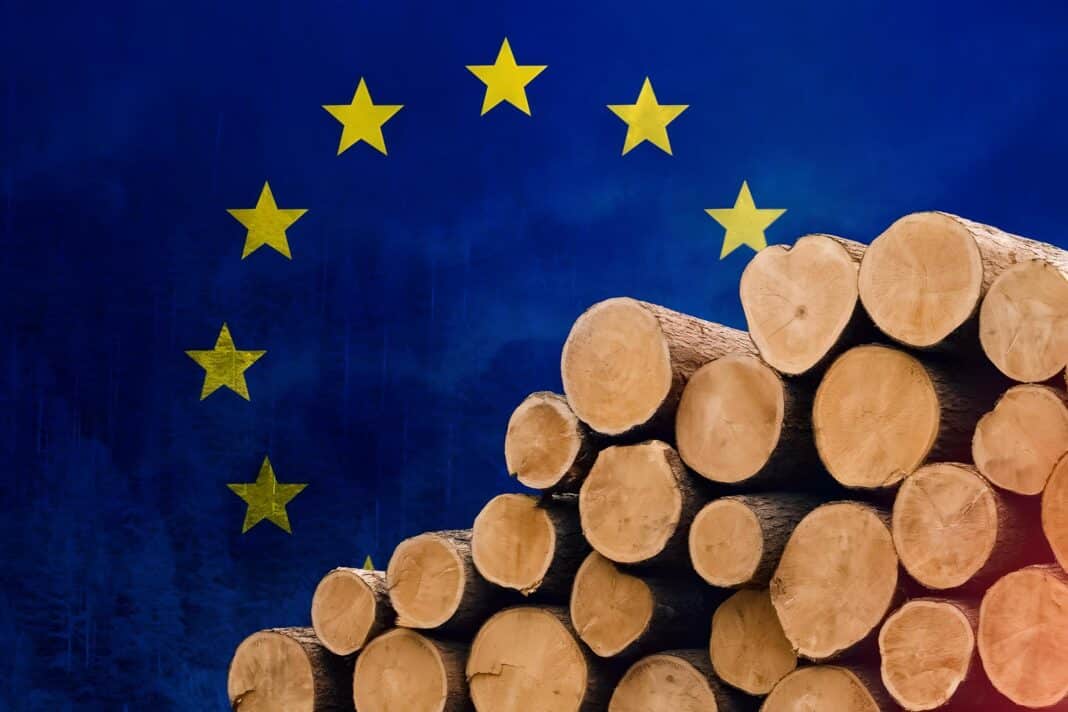The Australian Government has joined with global governments to welcome the European Commission’s push—as revealed by Wood Central last week—to delay the controversial EUDR by 12 months.
Yesterday, Julie Collins, Australia’s Minister for Agriculture, Fisheries and Forestry, said the new due diligence requirements effectively created a technical barrier to trading $234 million worth of agricultural products.
“A delay in implementation of the Regulation will provide an opportunity to further work with the EU to ensure the measure does not impose requirements that create unnecessary barriers to Australian exports,” Minister Collins said. “We will continue advocating for our world-class agricultural products and work closely with State and Territory governments to support the sustainable management of our valuable forests.”
In May, Wood Central spoke to a subject matter expert connected to EUDR discussions who said the EUDR had the potential to disrupt Australian supply chains for beef and wood: “The EUDR is unique because it is a B2B regulation set up by the EU, but enforced by individual EU members.”
At the time, the expert said it was conceivable that exporters may need to run two separate supply chains—”one that is EUDR-ready, and the other which is not”—with exporters having to “make a commercial and ethical decision whether to stay in EU supply chains.”
New regulations must better define deforestation.
The Australian Forest Products Association CEO Di Hallam praised the EU Commission’s decision: “We welcome the one-year extension, which will give Australian forest growers the time to begin using the tracing program without the risk of penalties, while the EU addresses technical issues.”
“The Australian forestry sector supports the EUDR’s goal of addressing products linked to deforestation,” she said. “However, the initial deadline was unrealistic. The systems required for compliance weren’t ready, which would have unfairly impacted Australian growers prepared to meet the requirements.”
In a media release, Ms Hallam stressed the need for further work to ensure the regulation’s implementation does not create unnecessary trade barriers for responsible producers, producers from developing nations, and small landholders.
It is crucial to understand that deforestation refers to the permanent removal of the forest when the forest is cleared, and the land is then used for another purpose. We represent the sustainable forest producers who replace the trees that are harvested to meet the demand for fibre, regardless of whether they are sourced from plantation estates or our sustainably managed native forests.
Di Hallam, CEO of the Australian Forest Products Association on the changes that are needed to be made to the EUDR before roll out.
“We look forward to working with both the EU and Australian governments over the next year to ensure a smooth transition and ultimately the delivery of a deforestation-free EU market.”
What are the key changes now expected?
In conjunction with the delay, the European Commission has also provided additional guidance clarifying key terms, including “forest degradation” and “operator. ” It also updates traceability obligations and penalties and offers practical scenarios to help businesses navigate compliance.
The Commission will also introduce a country benchmarking system to classify countries as low, standard, or high risk. This system will help streamline operators’ due diligence processes. Most countries are expected to be classified as low risk, allowing efforts to focus on areas where deforestation is most severe.
In addition, the Commission is enhancing international cooperation to support a just and inclusive transition to deforestation-free supply chains, particularly in countries where the regulation could have far-reaching economic impacts. New training, support tools, and an IT system for due diligence statements are set to be launched by the end of the year.
How the EUDR will work
- The regulation will assign regions within countries inside and outside the EU a low, standard, or high-risk level associated with deforestation and forest degradation.
- This risk classification will guide the obligations of various operators and the authorities in member states to perform inspections and controls. Consequently, this will streamline monitoring for high-risk regions and simplify due diligence processes for low-risk regions.
- Authorities responsible for these areas must inspect operators and traders dealing with products from high-risk regions, standard-risk areas and low-risk regions. This inspection aims to confirm whether they are effectively meeting the obligations stipulated by the regulation.
- Further, these competent authorities will inspect relevant goods and products either placed on their market, made available, or exported by high-risk regions.
- Lastly, the EU plans to enhance its cooperation with partner countries, focusing primarily on high-risk areas.
For more information on EUDR and its impact on global furniture supply chains, visit Wood Central’s special feature on EUDR and its implications for the European supply chain for timber-based furniture products.






